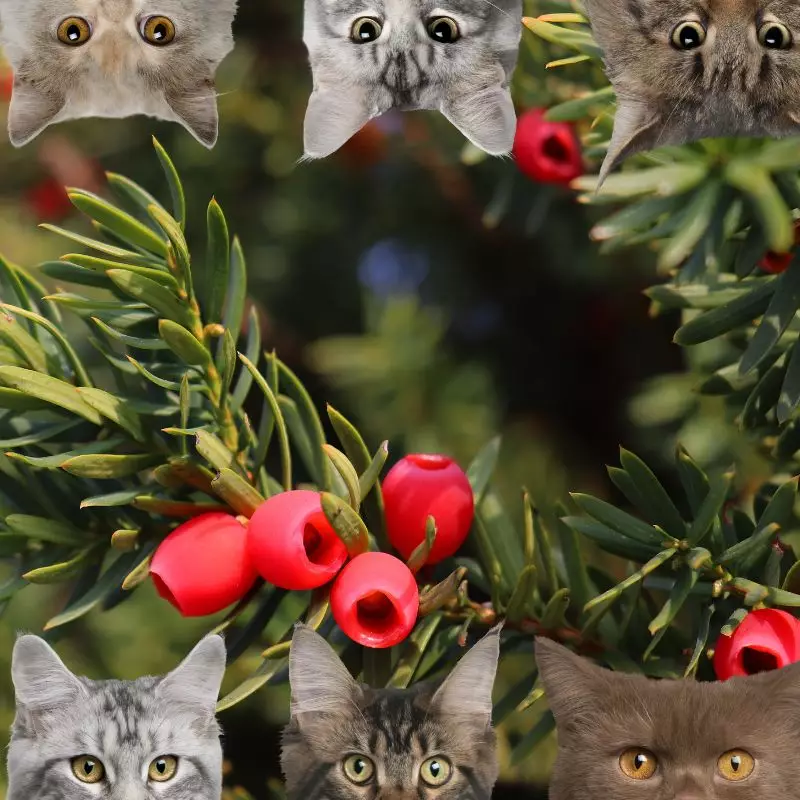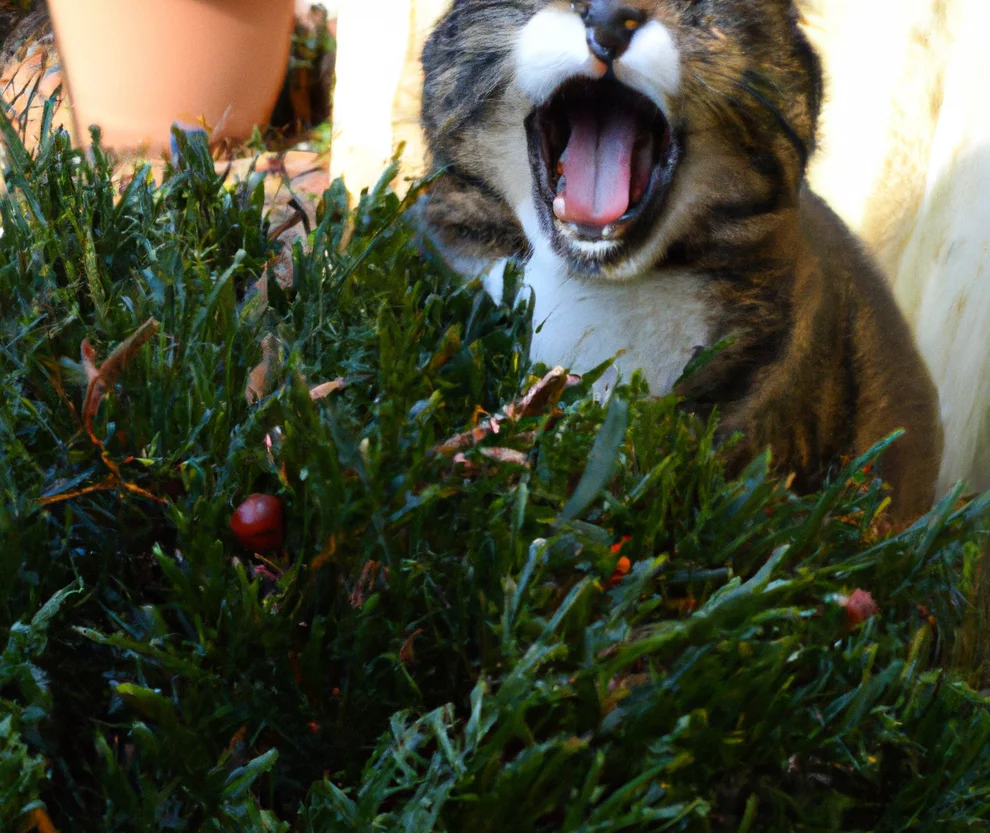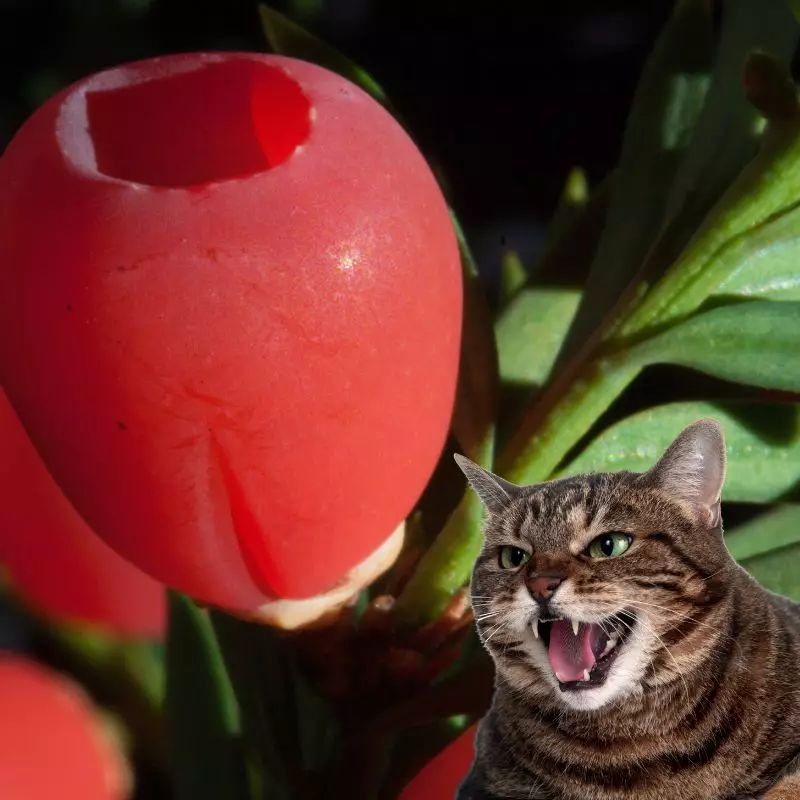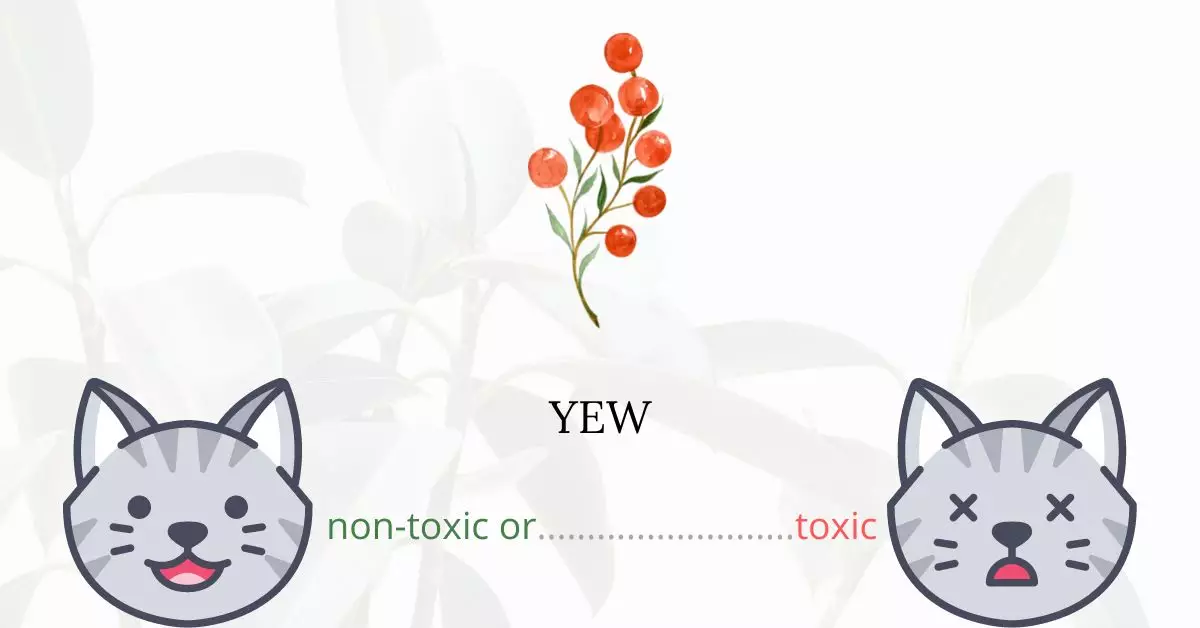Yes, the yew tree is indeed toxic to cats. Every part of the yew tree, barring the seed coat, possesses elements that can be harmful, if not fatal, to cats. The most detrimental compound found in the yew plant is the cardiotoxic taxine alkaloids, which can be particularly concentrated during the winter months. Even dried remnants of the yew tree remain hazardous, posing a severe risk if a cat uses them as toys or decides to test them. Given the potent toxicity of taxine and the small size of cats, even minimal contact with or consumption of the plant can lead to fatal consequences.
This article is penned with the collaboration of a group of seasoned Doctors of Veterinary Medicine (DVMs) whose valuable insights have enriched our understanding of the potential hazards posed by various plants, like the yew, to cats. Their extensive knowledge and experience have enabled us to deliver accurate and contemporary information on the risks associated with these plants and their impacts on cats. To further assure the reliability and precision of our information, we have also consulted high-authority resources such as ASPCA and PetMD for each plant discussed. Through this collaborative and comprehensive approach, we aim to provide readers with the most trustworthy and up-to-date information available.
Clinical Signs of Yew Poisoning in Cats

When a cat comes into contact with, inhales, or ingests any part of a yew plant, the exhibited symptoms can be sudden and escalate rapidly due to the presence of cardiotoxic taxine alkaloids found in yew plants. These symptoms can indicate severe distress in the animal and need immediate attention.
- Drooling: The cat may begin to drool excessively as a result of irritation or inflammation in the mouth and gastrointestinal tract, caused by the harmful compounds in the yew plant.
- Vomiting: Ingesting yew can lead to nausea and vomiting as the body’s response to expel the toxic substances.
- Weakness and Muscle Tremors: The toxic elements can affect the muscular and neurological systems, causing weakness and involuntary muscle contractions.
- Seizures: The neurotoxic effects of the yew plant can also lead to seizures due to abnormal electrical activity in the brain.
- Respiratory Distress and Rapid Breathing: The cardiotoxicity of the yew plant affects the cardiovascular system, causing respiratory distress and rapid breathing as the body struggles to deliver adequate oxygen to the tissues.
- Changes in Heart Rate and Blood Pressure: The compounds can lead to alterations in cardiac function, manifesting as irregularities in heart rate and fluctuations in blood pressure.
- Dilated Pupils: The pupils may dilate due to the body’s stress response to the toxins, or as a reaction to altered neurological function.
- Coma: In severe cases, the overwhelming amount of toxins can lead to a loss of consciousness and coma due to the severe impact on the brain and other vital organs.
- Death: If not treated promptly and effectively, the cumulative effect of these symptoms and the impact of the toxins can tragically lead to death.
Identifying these signs early and securing immediate veterinary attention is crucial for the survival and recovery of the affected cat. If you suspect yew poisoning, seek emergency veterinary care without delay.
First Aid and Treatment of Yew Poisoning in Cats

Because yew tree poisoning proceeds swiftly and death occurs shortly after consumption, the chance for full recovery is not usually feasible. If found early, induced vomiting will help eliminate as much of the plant as possible from your cat’s stomach contents. Gastric lavage is another alternative for removing plant matter from your cat’s stomach. Activated charcoal can bind to yew plant components in the stomach and help them move through the gastrointestinal tract with low absorption.
Additional supportive care may be undertaken, such as intravenous fluid therapy to manage blood pressure and a ventilator for respiratory distress. To counteract cardiac arrhythmia, your veterinarian may prescribe Atropine sulfate. Other drugs for seizure control and other neurological problems may also be prescribed.
Recovery from Yew Poisoning in Cats

Unfortunately, yew plant poisoning in cats and other animals is typically severe, with little chance of effective intervention. If your cat is treated quickly and aggressively for yew poisoning and recovers, he or she may require careful monitoring and supportive care for many days. Intravenous fluids and other medications may be necessary to address symptoms during recovery.
Prevention of Yew Poisoning in Cats
Limit your cat’s outside access to avoid yew poisoning. Keep yew tree leaf decorations out of your home and look for alternative decorations.
If you love plants but have cats at home, check out these lists:





